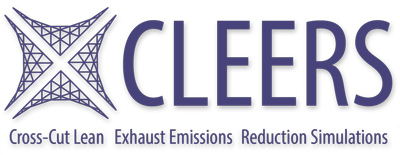Evaluation of Supplier Catayst Formulations for the Selective Catalytic Reduction of NOx with Ammonia
Jong Lee, General Motors
The selective catalytic reduction of NO using urea (urea-SCR) is one of the promising technologies for removing NOx from diesel engine exhaust. The engine-out NOx is reduced by ammonia (NH3) derived from urea over a catalyst to environmentally benign N2. In this paper, we investigate the effect of various reactor operating conditions on the NOx reduction performance of three different catalyst formulations (e.g., Cu-zeolite, Fezeolite,
Vanadium-based) to obtain useful guidance in the design and operation of urea-SCR lean NOx emission control systems. We examine the effects of
NO:NO2 ratio on the steady-state NOx reduction activity at typical diesel engine exhaust temperatures (150-550oC). Transient measurements were also performed to determine the impact of NH3:NOx ratio and NH3 storage on catalyst performance. The impacts of hydrocarbon poisoning and sulfur poisoning /regeneration were also examined.Evaluation of Supplier Catalyst Formulations for the Selective Catalytic Reduction of NOx with Ammonia.

